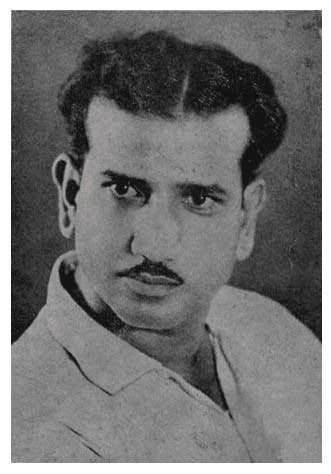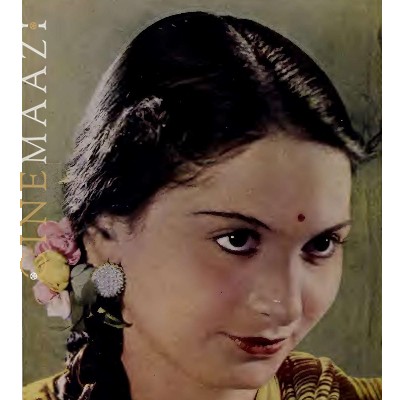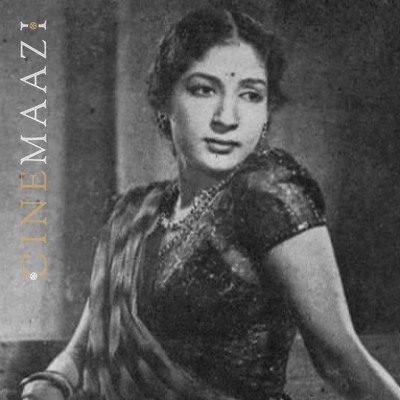Pandit Shivram

Subscribe to read full article
This section is for paid subscribers only. Our subscription is only $37/- for one full year.
You get unlimited access to all paid section and features on the website with this subscription.
Not ready for a full subscription?
You can access this article for $2 , and have it saved to your account for one year.
- Real Name: Shivram Krishna
- Born: 22 March, 1927 (Jodhpur)
- Died: 2 February, 1980
- Primary Cinema: Hindi
- Parents: Master Tulsidas
- Children: Jayshri Shivram , Jugal Kishore , Tilak Raj , Naveen Shivram, Mukesh
Known largely for scoring music for mythological films, Pandit Shivram was also a proficient harmonium player and a good vocal artist. He composed music for approximately 30 Hindi films, such as Teen Batti Chaar Raaste (1953), Oonchi Haveli (1955), Sati Ansuya (1956), Shravan Kumar (1956), Jai Ambe (1957), Gauri Shankar (1958), Phool Aur Kaliyaan (1960), Kan Kan Mein Bhagwan (1963), Sati Naari (1965), Shankar Sita Ansuya (1965), Shri Ram Bharat Milan (1965), Badrinath Yatra (1967), Gangaur (1964), and Gogaji Pir (1969). Also active in regional language cinema such as Rajasthani, Bhojpuri, Punjabi, and Haryanvi, he was virtually the default composer for Rajasthani films all through the 1960s, starting with the first Rajasthani film Babasa Ri Ladli (1961). He also sang in some of the films he composed for like Oonchi Haveli, Rangeela Raja (1960), Sati Ansuya, and Badrinath Yatra.
Born in Jodhpur on 22 March, 1927, his musical training started at age 8 under his father, Master Tulsidas, who was employed with the Marwar Record Company, Jodhpur from 1934 onwards. Later, he joined the court of the Maharaja of Jodhpur, Umed Singh as a singer/musician. Inspired by the fame of noted composer of the 40s, Khemchand Prakash, Shivram Krishna was drawn to the film industry. Aged 16, he went to Lahore where he worked for around three years under Pandit Amarnath and Master Ghulam Haider, before he returned to Jodhpur at the time of Partition. He went on to work as music director with His Masters Voice in Lucknow from 1948 till 1950, before arriving in Bombay in 1951. Here, he was to get his first break from renowned filmmaker V Shantaram. Shivraj composed the music for two of Shantaram’s films — Teen Batti Chaar Raasta (1953) and Surang (1953), both of which were appreciated, even as the films became silver jubilee hits. He also scored the music for V Shantaram’s Phool Aur Kaliyan (1960) which won the National Award for Best Children’s Film, as well as for Kaale Gore (1960). Interestingly, Shivram used the voices of V Shantaram’s daughters Charusheela and Madhura for these films.
Pandit Shivram had established a considerable name for himself in the field, and he went on to be signed by Dhirubhai Desai for Oonchi Haveli (1955) and by Nakhshab Jarchavi for Raftaar (1955). This was followed by Dhirubhai Desai’s Sati Ansuya (1956), which was to be a turning point in that he thereafter became typecast as a composer of mythological films. But for a few exceptions—such as the social drama Naya Kadam (1958), the stunt film Rangeela Raja (1960), and the two V Shantaram children’s films—all the films that Pandit Shivram composed for post Sati Ansuya belonged to the religious or mythological genre. In fact, a whopping 14 of the approximately 23 films he scored music for, were religious or mythological in nature. This came with its own challenges, as the popularity of the genre was limited, and the nature of the songs, similar. A few of his compositions still stand out such as the songs from Shravan Kuman (1960), Kan Kan Mein Bhagwan (1963) and Sati Naari (1965), with the song Tum naacho ras barse from the latter rendered by Mahendra Kapoor winning Pandit Shivram the Swami Haridas Award in 1966. Pandit Shivram is also credited with scoring music for what are among the longest Hindi film songs at 45 minutes and 70 minutes respectively, in the films Sampoorna Teerth Yatra (1970) and Mahapavan Teerth Yatra (1975). With a marked similarity in tune and structure, the songs celebrated India’s famous pilgrimage sites.
While Pandit Shivram did score music for films in regional languages such as Rajasthani, Bhojpuri, Punjabi, and Haryanvi, the bulk of his work in the vernacular space was in Rajasthani. He was, in fact, the most popular composer for Rajasthani films through the 1960s, after he had scored the music for the first Rajasthani film, Babasa Ri Ladli (1961). Pandit Shivram worked with lyricists like Asad Bhopali, Shevan Rizvi, Pyare Lal Santoshi, and Nakhshab Jarchavi in his non-mythological films, while collaborating with Bharat Vyas, Kavi Pradeep, Neeraj, Madan Bharti and Pandit Indra for films of the mythological genre. In Rajasthani films, he mainly worked with lyricists Pandit Indra and Bharat Vyas. Besides film music, he composed for several Marwari and classical music non-film albums, also collaborating with Ustad Nizamuddin Khan to produce a classical album.
Pandit Shivram’s children were also musically inclined. While his daughter Jayshree Shivram is a singer, his sons, Jugal Kishore and Tilak Raj together composed for a few Hindi films such as Bheegi Palkein (1983), his third son, Naveen Shivram scored the music for the teleserial Apnapan in 1999 as well as a few small-budget Hindi and Rajasthani film and non-film albums, and his son Mukesh was also a composer.
Pandit Shivram Krishna passed away on 2 February, 1980.
References
Profile Image Credits: Bollywood Direct
Content Sources Credits: https://bollywoodirect.medium.com/tributes-to-hindi-film-music-composer-of-yesteryear-pandit-shivram-on-his-37th-death-anniversary-96d0855ea5d2
https://www.imdb.com/name/nm1488325/
https://www.cinestaan.com/people/pandit-shivram-krishna-70588











.jpg)



